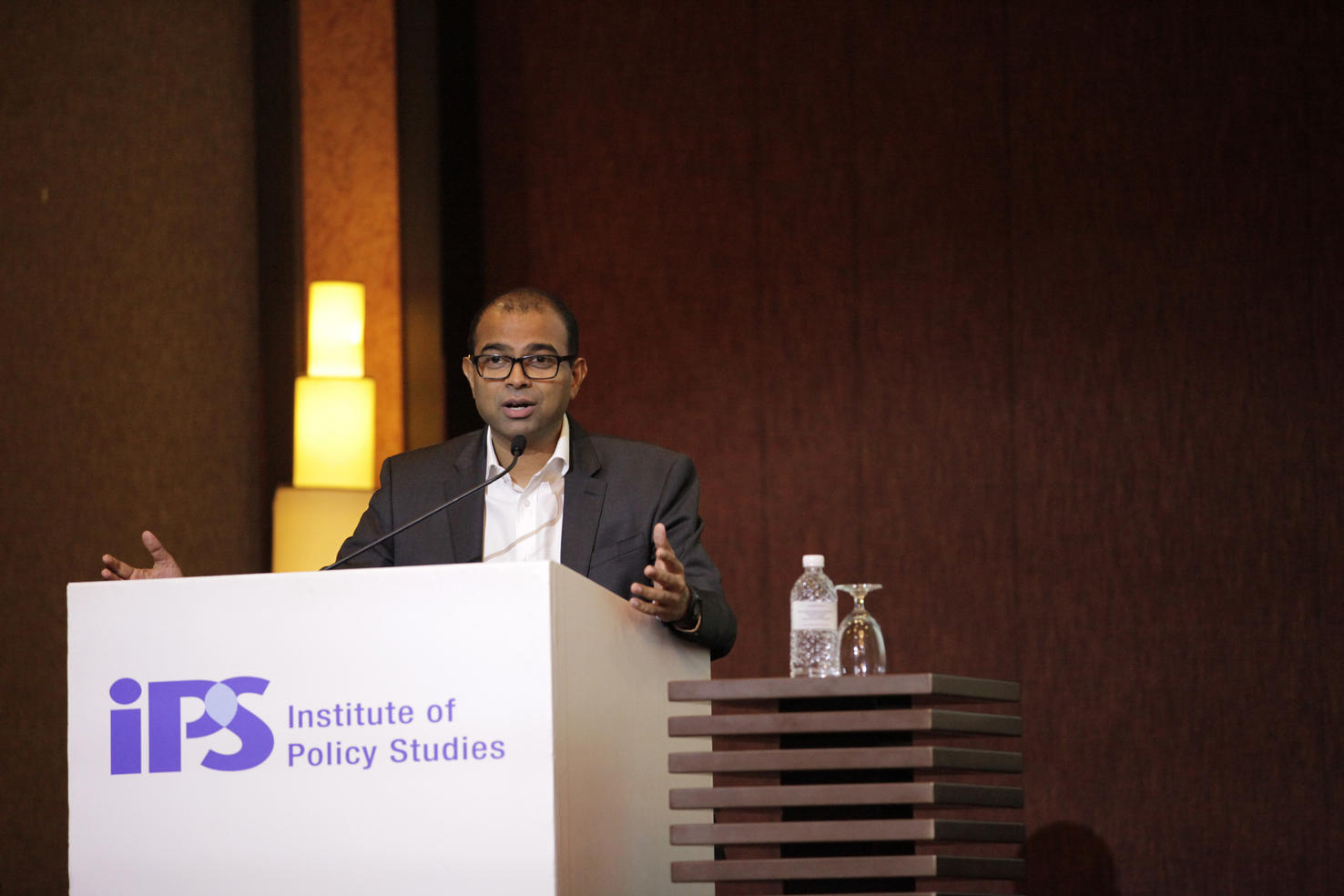SAP schools shouldn't be tweaked for sake of tokenism: Janil
Sign up now: Get tips on how to help your child succeed

Conference on Managing Diversity in Singapore, held by the Institute of Policy Studies.
ST PHOTO: GIN TAY FOR THE STRAITS TIMES
Follow topic:
Singapore's Special Assistance Plan (SAP) schools, which teach students to be bilingual in English and Chinese, came under the spotlight at a conference on diversity yesterday.
Members of the audience had suggested that the schools offer Malay or Tamil language classes so that their student populations could be more racially diverse.
The suggestion came during a discussion on Chinese students in SAP schools having few or no friends of other races.
But Minister of State for Education Janil Puthucheary is not in favour of it, saying: "We do not want to make use of racial tokenism in order to provoke a cultural position.
"We want to have a real outcome," he added. In short, an educational goal that gives the best education opportunity to every student.
Raising a hypothetical situation in which a SAP school offered Malay, he said that in such a situation, a handful of Malay students would apply to that school.
"And then what? ... Do those kids get a better education because they are learning Malay in a SAP school?
"Or are we saying that this is a good thing because all the rest of the kids now have some exposure to a Malay student or more Malay students in schools?"
Dr Janil also felt a handful of Malay or Indian students in a SAP school would realistically offer little chance or time for most Chinese students to meaningfully interact with them.
"If we can make an argument that there is a clear educational benefit, a greater benefit, then I think it's worthwhile," he added.
Dr Janil said SAP schools play an important cultural role in Singapore. They were started in 1979 because of concerns over the Chinese language and the available opportunities for the Chinese majority to protect their cultural heritage.
He also said similar programmes exist for Malay and Tamil, but do not have comparable take-up rates.
He wondered whether the SAP school system had been singled out because of its success, adding that they make up a small proportion of the school system.
Returning to his main point, he argued that having a small group of non-Chinese students is not going to change the racial harmony dynamics. Neither would it change the intra-school mix a great deal.
The reality is that SAP schools will continue to consist mostly of ethnic Chinese students and minority students who choose to take Mandarin, he added.
Charissa Yong

